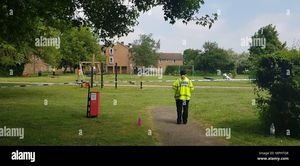A shooting incident at the United Nations compound in Kabul has left one person dead and another injured, raising alarm over the continuing security challenges faced by international agencies operating within Afghanistan. According to the United Nations Assistance Mission in Afghanistan (UNAMA), the shooting occurred on Sunday afternoon, resulting from gunfire directed at the UN's guard post by a Taliban fighter positioned outside the perimeter wall.
The U.N. confirmed on Monday the identity of the injured individual as a security guard contracted by the U.N. from Nepal, who sustained minor injuries and was treated at a nearby hospital. The Taliban fighter, meanwhile, was later found dead outside the compound, though details surrounding his death were not disclosed.
Eyewitness accounts indicate the shooting stemmed from tensions possibly related to the internal dynamics within the Taliban's security forces. Abdul Mateen Qani, spokesman for the Taliban's interior ministry, described the incident as the result of what he termed “a one-way misunderstanding,” without elaboration on specific circumstances leading to the gunfire.
UNAMA stated their security personnel did not return fire during the incident, which reflects the cautious approach taken by UN contractors operating under volatile conditions. Following the shooting, access to the compound was reportedly restricted as precautionary measures were implemented. The restrictions have since been lifted, but the disruption to U.N. operations underlines the precarious state of security.
Investigations by both the Taliban and the U.N. are currently underway to understand the full circumstances of the shooting. With the Taliban now governing Afghanistan, such incidents raise concerns over the stability and efficiency of their security apparatus. This recent event marks yet another example of potential conflicts within the Taliban's ranks, especially as they work to consolidate power.
This incident has not only shaken the confidence of U.N. staff working on the ground but also highlights the broader complications of operating amid conflicting interests and responsibilities within Afghanistan's new governmental structure. The Taliban's efforts to maintain order and protect international missions may be continually tested by internal dissent and miscommunication among various security factions.
Details from the U.N. report indicate the complexity of the situation—while the Taliban has taken steps to engage with international organizations, the challenges posed by their own security contingents cannot be overlooked.
UNAMA reported, "UN-contracted security guards did not return fire during the incident, indicating their focus on protecting international personnel rather than engaging directly with Taliban forces." The U.N. and Afghan authorities seem to recognize the urgent need for cooperative strategies to bolster security, especially as the international community remains wary of the Taliban's commitment to uphold peace and protect civilians.
Previous encounters and the current state of security have raised serious questions about whether the Taliban can manage external relations effectively or if incidents like this will repeat, jeopardizing not only diplomatic missions but the lives of those attempting to work with Afghanistan's beleaguered populace.
The ramifications of such occurrences extend beyond immediate concern for those involved; they suggest broader systemic issues within the Taliban's governance model. Finding resolutions to internal disputes and misunderstandings will be pivotal if they hope to gain greater international recognition and support.
With separate investigations underway, both Taliban officials and U.N. representatives will likely continue to face pressure not only to clarify the events of Sunday but also to assure the safety of personnel and instill confidence among stakeholders eager to engage with Afghanistan during this cautious new chapter.
The shooting incident at the Kabul compound serves as both a warning and reminder: the road ahead remains fraught with challenges, and the stakes have never been higher for all parties involved.



